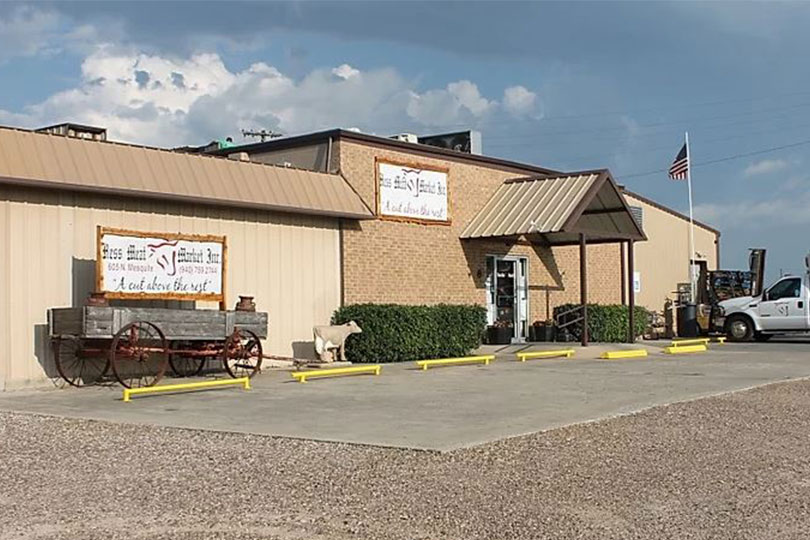By Jennifer Dorsett
Field Editor
Hess Meat Market is a family-owned custom meat processor and butcher shop in Muenster.
Business mostly consists of repeat customers who bring their animals to be processed, and shoppers who know what to expect from a custom meat market.
But the COVID-19 pandemic’s effects have reached even this little corner of the world in North Texas, bringing with it new customers, new business and new challenges.
“When this whole thing first started, we had people standing in lines out the door just to get hamburger meat,” Stanley Hess, owner of the meat market, said.
The long lines were good for business, but Hess said they were only temporary.
When meat supply chains settled back down and larger retailers began having more stock on the shelves again, the crowds at Hess Meat Market dwindled.
While retail demand may have returned to normal levels, Hess said the processing plant—where he processes lambs, goats, buffalo, hogs, cattle and wild game—is staying busy.
In fact, Hess has turned away several people who have called asking if there was any availability this spring and summer.
“I’d say probably 80 to 90 percent of my processing business is custom slaughter,” he said. “Right now, we’re booked solid through September 2021, then probably about 85 percent booked for the remainder of the year. And I have one date on the books already for 2022.”
Hess does maintain a waiting list. If someone cancels on a day when he’s processing animals, he’ll call to see if anyone on the wait list can bring animals to take their spot.
“I had a couple of people cancel or not show up last week, and I called some folks on the list and had two people get up here within about 30 minutes,” he said. “We have to keep running, though. Every animal that’s booked that doesn’t come through the door loses us money.”
It’s a business he is proud to be in, but it’s an expensive one.
Hess said regulatory burdens, costly upgrades, pressure from activists and skyrocketing expenses have all taken their toll on smaller operations like his.
“There used to be one or two meat lockers in every little town around here, but they’re almost all gone now. We’re a dying breed, because no one can afford to stay in it,” Hess, a Texas Farm Bureau member, said. “There’s no other business you’d spend this much money on just to stay afloat. It’s a very expensive game.”
To help offset the amount of money spent on facility and processing fees, Hess has focused on expanding the sausage and jerky business by building relationships and making deliveries to grocery stores, who will then in turn sell his products to a larger audience.
“Slaughter used to be the only business, but now it’s just a sideline,” he said. “The real profits are in the sausage and jerky. I’ll keep processing because it’s a service people need, but it’s not where I make my money at all.”
One good thing about the pandemic, Hess added, is that it has highlighted weaknesses in a supply chain controlled by a handful of large businesses.
“If Congress wants to ensure our food safety and production before the next pandemic and just for the future, they need to let more small plants become federally-inspected plants instead of state-inspected plants,” Hess said. “Something as important as food—when people run out of food, where do they go? They turn to the small packers, farm stands, ranchers and farmers in the field. America still needs us. It takes businesses of all sizes to keep things going.”


Hess meat market is a great place, the best employees!! When I go through Muenster I always stop in! The best ever summer sausage!!